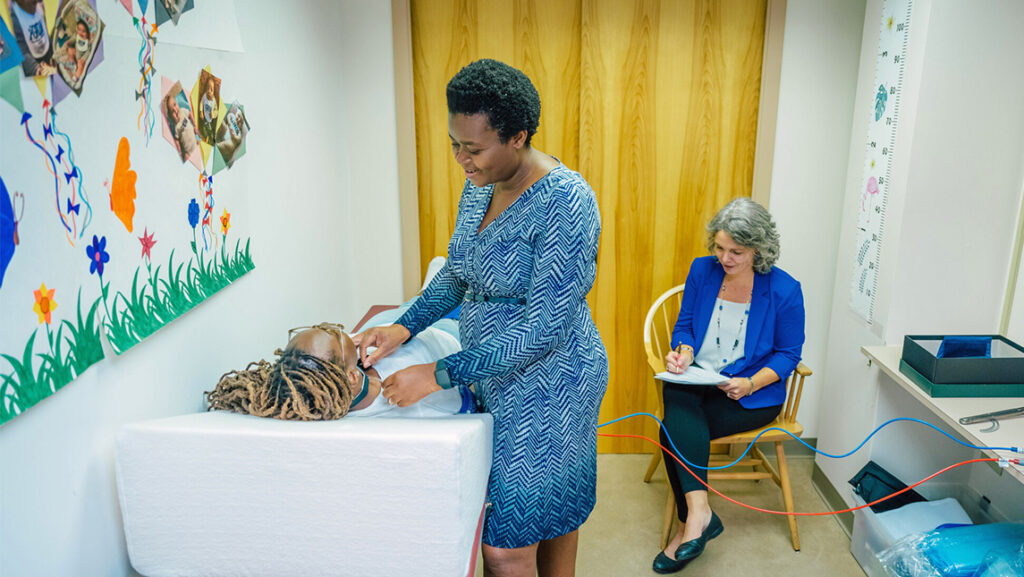
Dr. Stephen Sills (Center for Housing and Community Studies) received new funding from The Foundation for a Healthy High Point for the project “High Point Healthy Housing Program: Expansion of the UNCG CHCS Health Impact Team in High Point, NC.”
The project attempts to address the community-identified issues of housing repair, unhealthy housing, and to reduce the overall housing cost-burden by reducing utilities. When mapped, researchers see that poor-quality housing is disproportionately found in South and Southwest High Point in neighborhoods with a concentration of poverty and people of color. These same neighborhoods have higher than would be expected rates of respiratory illnesses, falls, fires, blood-lead levels, and other chronic conditions which may be linked to poor housing quality.
The project has four main outcome goals for residents who are engaged by the researchers: 1) improved understanding of the relationship between poor housing conditions and negative health outcomes; 2) a reduction in the overall cost-burden in housing by improving energy efficiency; 3) fewer trips to the hospital for respiratory-related issues attributable to environmental conditions in the home; and 4) greater awareness and utilization of housing and health services in the community.
Each of these outcomes align with evaluative metrics which will be tracked throughout the project. These outcomes clearly relate to reducing poverty and building self-sufficiency. Reducing housing and health cost-burden means more money for childcare, education, and better nutrition. Housing stability programs that reduce cost-burden have been promoted as best practices by the Urban Institute for having greater impact on reducing poverty than “expanding transitional jobs, child support, the earned income tax credit, Supplemental Nutrition Assistance Program benefits, or increasing the minimum wage.” Healthy and affordable housing is the best place to begin in a sustainable solution to poverty and enhancing wellbeing.
Dr. Sills also received new funding from the City of Goldsboro for the project “Consulting Services Analysis of Impediments to Fair Housing Choice Proposal Submitted to City of Goldsboro.”
This proposal was developed by the Center for Housing and Community Studies (CHCS) in response to a request for proposals from the City of Goldsboro. The project involves compiling, analyzing, and mapping local jurisdictional, state, and national data sources on residential housing disparities for the seven federally protected categories: Race, Color, Religion, Sex, Handicap, Familial Status, and National Origin. Local mortgage markets, house sales, public housing, voucher programs, market rental patterns, fair housing complaints, and other data points will be referenced. Collection of primary data from stakeholders and key informants through public and stakeholder meetings and interviews will aid in providing a comprehensive understanding of fair housing in the region. The analysis also includes review of all the jurisdictions’ laws, regulations, and administrative policies, procedures, and practices and an assessment of how those laws, etc. affect the location, availability, and accessibility of housing. Based on the analysis, we will develop conclusions pertinent to equal access, free choice, and equitable outcomes in the housing for all despite race, color, religion, sex, national origin, familial status, and handicap needs, and produce a Fair Housing Plan recommending a course of action on how to address any identified impediments to fair housing choice.


